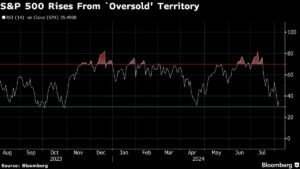Mortgage rates plunge to lowest level in over a year amid recession fears. Is now a good time to buy a house?


Mortgage rates have plunged to their lowest level in over a year. But with fears of a recession mounting, is it a good time to buy a house? Not necessarily, one expert says.
“A lot of people want to dive in with 30-year rates declining, but at the end of the day, we still have a housing market that’s overly elevated as a whole,” Todd Stankiewicz, a certified financial planner and president and chief investment officer of Harrison, N.Y.-based Sykon Capital, told MarketWatch.
Most Read from MarketWatch
With home prices still at a record high and the median-priced home near $400,000, buyers should not let the direction of mortgage rates drive their decision to buy a house, he said. “Don’t try to buy it because it’s a good deal. Don’t try to rush into it because rates came down. You’ve got to be patient,” Stankiewicz said.
His word of caution comes at a time when markets are in turmoil.
Global stock markets are sinking as investors view the weak July jobs report as a sign that a widely-recognized indicator called the Sahm rule has been triggered, indicating that the U.S. economy could be entering a recession.
The rule was named after Claudia Sahm, but the economist said she hadn’t seen enough evidence yet that a recession is certain. “We are not in a recession now,” Sahm told CNBC, “but the momentum is in that direction… a recession is not inevitable and there is substantial scope to reduce interest rates.”
30-year rate falls to lowest level since April 2023
Since mortgage rates move based on what the market expects, the possibility of the Federal Reserve cutting rates as the economy slows pushed the 30-year rate down over the past week.
Initially, the 30-year fell due to the Fed putting a September rate cut on the table on Wednesday, and then it fell again after the jobs report on Friday. As of Thursday, the 30-year average rate was at 6.48%, the lowest level since May 2023, according to data from Intercontinental Exchange.
The 30-year fixed-rate mortgage fell further on Monday, to 6.34%, which was the lowest level since April 2023, according to Mortgage News Daily. The site surveys lenders on a daily basis.
“We could see additional interest-rate declines if the [economic] data continue to support the narrative of a weakening economy, but today’s data didn’t offer additional support,” Ralph McLaughlin, a senior economist at Realtor.com, told MarketWatch. The service side of the economy rebounded in July, countering recession talk.
(Realtor.com is operated by News Corp subsidiary Move Inc., and MarketWatch is a unit of Dow Jones, which is also a subsidiary of News Corp.)
Income required to buy a $400,000 house at current mortgage rates
Yet for many buyers, a drop in rates is a big development, as housing affordability has deteriorated significantly over the past few years. In May, housing affordability fell 7% from a year before, as measured by the Federal Reserve Bank of Atlanta’s Home Ownership Affordability Monitor.
Buying a median-priced $383,000 house in May with an annual salary of $81,000 would eat up 44% of a household’s income, which is considered to be a financial burden, according to the Atlanta Fed.
If a home buyer wanted to comfortably afford a house with a median listing price of about $440,000 as of July, they would need to earn an annual income of $90,000, according to calculations by Realtor.com.
The calculations assume that the buyer’s monthly housing payment would only be a third of their income. Their monthly housing costs would be around $2,500, assuming a down payment of 20%, a 30-year rate of 6.3%, as well as taxes and insurance.
To be sure, “an economic downturn isn’t necessarily bad news for buyers,” McLaughlin said, based on a 2023 survey of visitors to its site.
About 36% buyers indicated then that a recession would make them somewhat more likely to purchase a home, McLaughlin said, with that share being even higher among first-time buyers at 42%, and 32% among repeat buyers.
And if the U.S. economy enters a recession and a buyer’s income is not impacted and is “relatively secure,” he added, “a recession could present advantages for homebuyers, such as higher inventory, lower rates and a slower moving market.”
But buying a house should also be a decision that is based on one’s finances and risk tolerance, with a focus on whether one can pay their mortgage versus getting a good rate or price, Mark Palim, deputy chief economist at Fannie Mae, told MarketWatch.
“I would really not try to time the market,” he added. “I wouldn’t try to time home prices or rates. I would look at my personal budget, my personal circumstances… [and if] you’re comfortable enough to ride out whatever happens in the economy.”
Stankiewicz also advised home buyers to factor long-term needs and a variety of scenarios. “What ultimately people should be focusing on is, is the home right for them? Is it right for their family, and do they see them living there for, you know, seven to 10 years?” Stankiewicz said. “Is it right for their financial situation going forward?”
Low housing inventory still a problem in some parts of the country
Lower mortgage rates could also free up more housing inventory across the nation, Fannie Mae’s Palim said.
Higher interest rates discourage homeowners from moving, particularly those who have ultra-low mortgage rates. A move could necessitate them taking on financing at an interest rate that’s double what they presently have.
Consider this: For a homeowner who still has an outstanding balance of $200,000 and a rate of 3.5% on their mortgage, buying a house of equal value at a new rate of 7% would mean their monthly payment would increase by 38%, which would add up to $110,000 over the remaining life of the loan, according to a working paper titled “Household Mobility and Mortgage Rate Lock,” circulated by the National Bureau of Economic Research on Monday.
That “creates a large disincentive to move,” the researchers added. Higher interest rates prevented roughly 800,000 moves from happening between the third quarter of 2022 and second quarter of 2023, the researchers found. “For households moving between July 2022 and June 2023, the average rate gap was about 2.7 percentage points, which corresponded to a difference in annual payments of $4,928,” they wrote.
With homeowners staying put, the inventory of homes for sale has remained low in many parts of the U.S. Housing inventory is 32% below pre-pandemic averages, according to a monthly report from ICE, with “stubbornly low” levels in the Northeast.
‘Fixated on the American Dream’ versus weighing costs of homeownership
Home buyers eager to snap up lower rates should also be aware of the rising cost of owning property. Homeowners have been especially challenged by the cost of utilities, which includes electricity, gas, water and sewage, as well as homeowners insurance, and real-estate taxes, according to a recent survey by Fannie Mae.
Aspiring homeowners should factor those costs in before committing to a home, Stankiewicz said. “People become so fixated on the American Dream, owning a house,” he said. But they sometimes ignore the “other costs that come along with it,” he added.
So even though mortgage rates are falling and people might feel compelled to buy now, rather than wait until they can afford to, they should not “get too caught up in that,” Stankiewicz added, and “buy a home that’s not right for them at the wrong time.”
What personal-finance issues would you like to see covered in MarketWatch? We would like to hear from readers about their financial decisions and money-related questions. You can fill out or write to us at . A reporter may be in touch to learn more. MarketWatch will not attribute your answers to you by name without your permission.








